
To understand the forecasts provided by different weather apps and websites we first need to have a basic appreciation of the data they present. Obviously they can only be as good as their data inputs, but where does that come from?
The answer lies in the raw data output of numerical weather prediction (NWP) models. We therefore also need to understand the inherent strengths and weaknesses of these forecasts.
As there aren’t that many different models that provide free or relatively low-cost data, often different apps or websites are simply presenting the same data in different ways.
Understanding numerical weather prediction
The key premise behind weather modelling is that the mathematical equations governing motion, fluid dynamics and thermodynamics can be used to predict the future state of the atmosphere.
Key variables within each model include wind strength and direction in three dimensions, air density, temperature, pressure and humidity.
This makes it a hugely data-intensive process, which necessitates dedicated use of some of the world’s most powerful supercomputers, which are often replaced on two- or three- yearly timescales. Even then, a single model run can take up to six hours to process.
The accuracy of model output depends on many factors including the size of the horizontal grid and the number of vertical atmospheric ‘slices’ considered.
A feature, whether meteorological or geographical, needs to cover at least three grid points in order to register in the model. Therefore, a model with a 22km grid will ignore weather features that are less than 65km across.
この記事は Practical Boat Owner の March 2021 版に掲載されています。
7 日間の Magzter GOLD 無料トライアルを開始して、何千もの厳選されたプレミアム ストーリー、9,000 以上の雑誌や新聞にアクセスしてください。
すでに購読者です ? サインイン
この記事は Practical Boat Owner の March 2021 版に掲載されています。
7 日間の Magzter GOLD 無料トライアルを開始して、何千もの厳選されたプレミアム ストーリー、9,000 以上の雑誌や新聞にアクセスしてください。
すでに購読者です? サインイン

Orca sink yacht in Strait of Gibraltar
Spain's maritime rescue service, Salvamento Maritimo, has reported that a 15m (49ft) yacht sank in Moroccan waters in the Strait of Gibraltar following interaction with a pod of orca.

No kill cord or lifejackets were worn during fatal powerboat crash
A kill cord and lifejacket are useless unless worn-that's the warning from the Marine Accident Investigation Branch (MAIB), following its investigation into a powerboat crash that killed a 32-year-old woman and five-year-old girl on 2 October 2022.

Multihull sail work
Brush up on multihull sailing skills before heading off on charter with Gavin Le Sueur's guide to spinnaker handling, tacking and gybing

Five top causes of engine failure and how to prevent them
Jake Kavanagh talks to Sea Start marine engineer Nick Eales about how to avoid the five major causes of an engine breakdown at sea
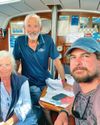
Sail the Atlantic with strangers
Would you sail across the Atlantic with someone you've just met? Ali Wood meets the cruising crews who've done just that
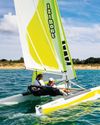
IZIBoat: simple sailing
Rupert Holmes sails an innovative catamaran design intended to widen participation in sailing among those with little time to get on the water in more conventional craft
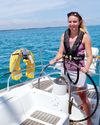
30 WAYS TO GET AFLOAT
From tall ships to small dinghies, you needn't own a boat to sail. Ali Wood looks at the options, and how skippers can also find crew
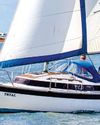
Boats for restoring under £20,000
Duncan Kent picks the best sub-35ft sail and power boats to look for when aiming to undertake a restoration on a budget
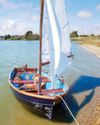
Seaworthy dinghies for less than £500
For low cost traditionally-styled GRP trailer-sailers, consider the Foreland and the Otter available at bargain basement prices
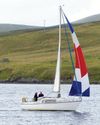
Playing with coloured sails
Maintaining an hourglass-shaped balloon and ratcheting up the log numbers